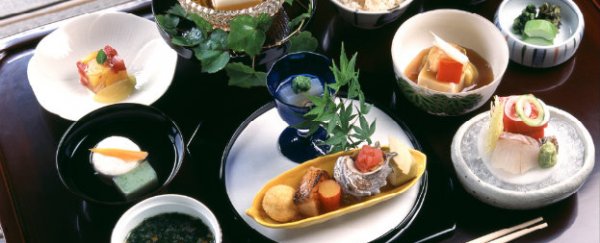Japanese cuisine and cooking methods have been put under the microscope and the result is the scientific reinvention of flavour.
There is no doubt that Japanese food is one of the most delicate yet flavourful cuisines in the world. And now, nine renowned chefs have teamed up with three scientists to deconstruct ancient Japanese cooking techniques to perfect the preparation of every ingredient on a Michelin-starred menu.
Kyoto in Japan is filled with family-run restaurants, where age old cooking secrets are passed on between chefs. "Chefs cook and provide something for people to enjoy," Motokazu Nakamura, chef of Nakamura, a three Michelin-starred institution in Kyoto, told Anna Fifield at The Washington Post. "For that, we need to use our imagination. That would have been unheard of for our ancestors."
Nakamura is among the chefs who want to learn the science behind traditional cooking methods, and use their knowledge to maximise the flavour of their dishes.
The experiments are taking place at the Japanese Cuisine Laboratory at Kyoto University, and the team has so far determined the perfect steaming temperature for abalone, experimented with releasing the smell of air in food, and found the optimal pickling period for squid guts.
The team spent the first six months of the experiment steaming abalone, changing the temperature in tiny increments. For those who are interested in Japanese cooking, the perfect temperature was found to be between 60 and 64 degrees Celsius.
"It turned out that even two degrees had a huge impact on its deliciousness," Tohru Fushiki, nutritional chemist and leader of the experiments, told Fifield at The Washington Post.
In the next six months, the team experimented with the coagulation of food and air by creating small bubbles of air, which when popped, spread the smell of air through the food.
The team is now exploring the time taken for your taste buds to experience the flavour of food. Your tastebuds experience different flavours at different times. For example, sugar and salt are tasted immediately, whereas it can take up to six seconds for peppery flavours to hit the palate. Using this knowledge, the group hope to invent a dish where the different flavours hit your tongue over several seconds.
Despite his new learnings, Nakamura concludes that cooking with the soul is what gives food its true taste.
Source: The Washington Post
